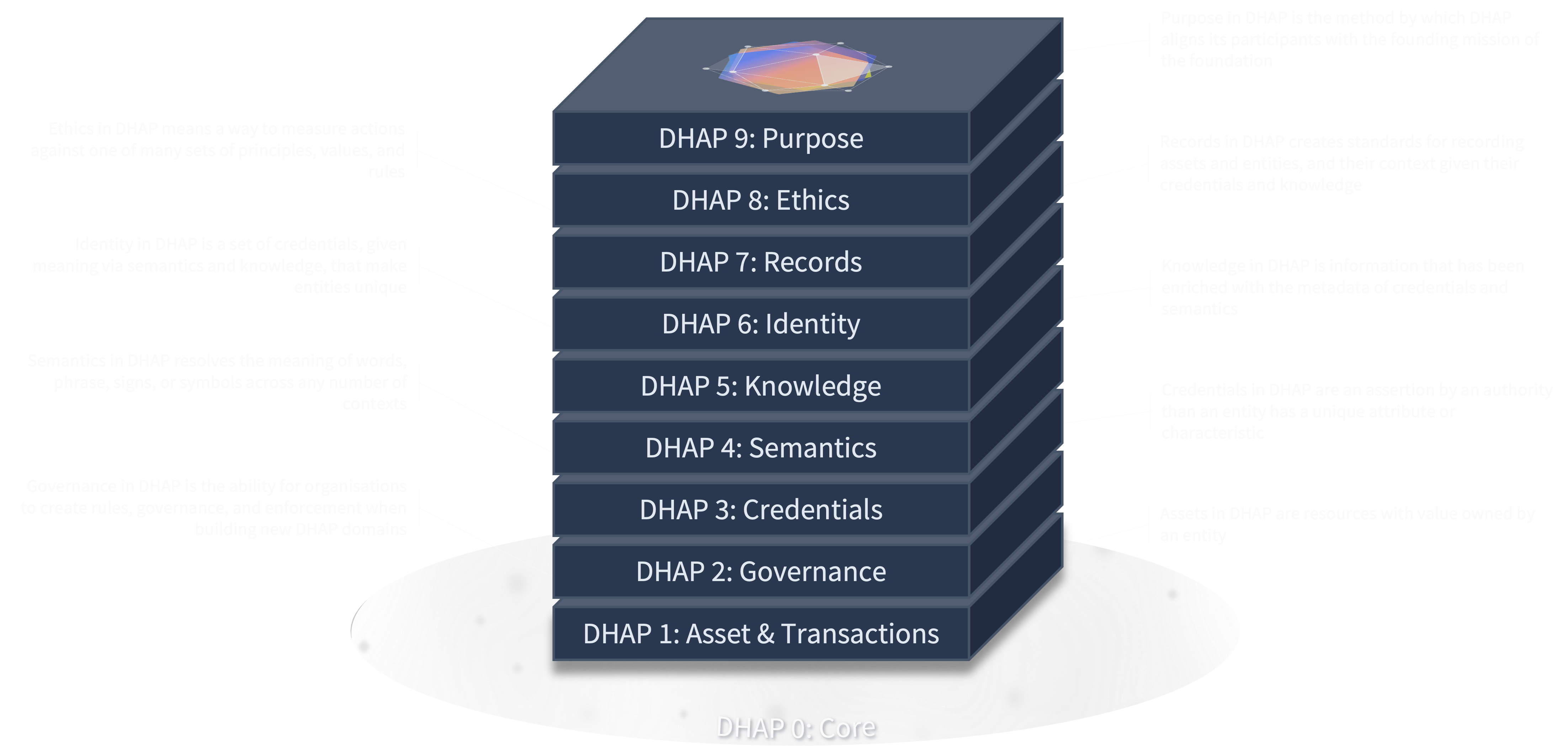
Decentralised Human Architecture Protocol
A comprehensive, multi-layer protocol designed to put human agency at the centre of digital infrastructure and economic systems.
A Pledge to Humanity
The Decentralised Human Architecture Protocol is a technology that is built on a pledge - which is its purpose. A pledge to provide a neutral, robust, and adaptable foundation for a new generation of decentralised applications, organisations, and economies. A pledge to remain forever open, forever free.
This is not a declaration of a finished product, but an invitation to a shared journey.
We call upon the developers who seek to build without walls. We call upon the entrepreneurs who envisage fairer systems. We call upon the users who demand sovereignty over their digital lives. We call upon the idealists who believe in a more equitable digital world.
Join us. Take this code, fork it, improve it, build upon it. Challenge it, question it, and help us make it stronger. Together, we will forge a digital future that is truly of the people, by the people, and for the people.
Current Implementation
Knowledge Graph
The DHA Protocol is currently being implemented as an EVM compatible orchestration layer, providing developers with familiar tools while enabling advanced decentralised infrastructure capabilities.
This implementation allows for seamless integration with existing Ethereum-based applications while providing the scalability and efficiency needed for human-centred digital infrastructure.
Each protocol layer operates independently, allowing for modular development and governance while maintaining interoperability across the entire stack.
Protocol Layers
Each layer of the DHA Protocol serves a specific function while contributing to the overall goal of human-centred digital infrastructure. The layers build upon each other to create a comprehensive ecosystem.


DHAP-9: Purpose
Purpose in DHAP is the method by which DHAP aligns its participants with the founding mission of the foundation
DHAP-8: Ethics
Ethics in DHAP means a way to measure actions against one of many sets of principles, values, and rules
DHAP-7: Records
Records in DHAP creates standards for recording assets and entities, and their context given their credentials and knowledge
DHAP-6: Identity
Identity in DHAP is a set of credentials, given meaning via semantics and knowledge, that make entities unique
DHAP-5: Knowledge
Knowledge in DHAP is information that has been enriched with the metadata of credentials and semantics
DHAP-4: Semantics
Semantics in DHAP resolves the meaning of words, phrase, signs, or symbols across any number of contexts
DHAP-3: Credentials
Credentials in DHAP are an assertion by an authority than an entity has a unique attribute or characteristic
DHAP-2: Governance
Governance in DHAP is the ability for organisations to create rules, governance, and enforcement when building new DHAP domains
DHAP-1: Assets
Assets in DHAP are resources with value owned by an entity
DHAP-0: Core
Core in DHAP is the foundational blockchain infrastructure layer that provides the decentralised, secure, and transparent base upon which all other protocol layers are built